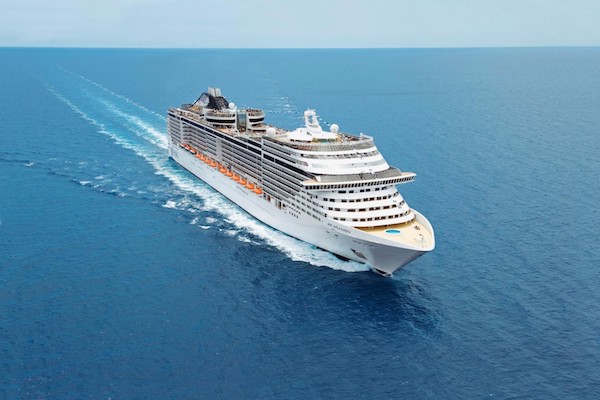MSC Cruises has announced the cancellation of three Grand Voyage sailings through the Red Sea slated for April. This decision is attributed to heightened risks affecting shipping activities in the region, leading to significant operational changes.
The impacted itineraries include the MSC Splendida’s 24-night journey from Durban to Genoa, MSC Opera’s 21-night cruise from Dubai to Genoa, and MSC Virtuosa’s 23-night sailing from Dubai to Southampton. Passengers are being contacted with alternative options.
Impact on Scheduled Voyages
The cancellations have affected three major itineraries, with voyages initially planned to transit the Red Sea. These include the MSC Splendida, MSC Opera, and MSC Virtuosa. The decision to cancel was not made lightly, considering the logistics and cost implications involved in rerouting ships.
Passengers holding bookings on these cruises are being offered a full refund, a complimentary transfer to future voyages of similar duration, or the choice of rebooking on any MSC Cruises itinerary with a potential price adjustment. The aim is to minimise disruption while ensuring passenger satisfaction.
“The safety of our passengers and crew is paramount,” a representative stated, reflecting the company’s commitment to secure and enjoyable travel experiences.
Shipping Risks in the Red Sea Region
The shipping routes in the Red Sea have recently faced increased threats, prompting travel warnings across several Middle Eastern countries. These threats are primarily due to geopolitical tensions leading to attacks on merchant vessels, necessitating caution in maritime operations.
The Red Sea is a critical route for global shipping, and any disruptions can have wider implications on international trade. MSC Cruises’ decision underscores the unpredictable nature of these waters and the company’s proactive measures to avoid potential danger.
Alternative Routes and Strategies for MSC Cruises
With no safe alternative routes through the Red Sea, MSC Cruises has opted for a western reroute. This involves sailing along the western coast of Africa, bypassing the region altogether to reach European ports.
This strategic decision has been supported by logistical assessments ensuring that the ships can reach Europe without passenger involvement. The reroute avoids any ports of call, streamlining the transit process while prioritising safety.
Additionally, this measure allows MSC Cruises to maintain its summer schedule in Europe, highlighting its flexibility and commitment to meeting passenger expectations despite unforeseen challenges.
Passenger Communication and Refund Policy
MSC Cruises has initiated direct communication with affected passengers, ensuring they are informed of the changes and available options. This includes personalised assistance to manage rebookings or refunds efficiently.
Passengers opting for future cruises are encouraged to select itineraries that match the original travel duration. MSC’s customer service team is actively assisting, aiming to align new bookings with traveller preferences.
The cruise line’s policies reflect a considerate approach to customer care, emphasising transparency and support throughout the transition process.
Geopolitical Influences on Maritime Decisions
Recent geopolitical developments have significantly influenced marine itineraries, with the Red Sea being a focal point for strategic assessments by cruise lines.
This situation highlights the intricate relationship between international relations and the travel industry, where cruise operators must adapt swiftly to global tensions.
In this context, MSC Cruises’ decisions are indicative of a broader trend where maritime travel adjustments become necessary in response to external pressures.
Future Outlook for MSC Cruises
Looking ahead, MSC Cruises remains committed to adapting its services to ensure the safety and satisfaction of its passengers. The company continues to monitor the situation closely and is prepared to make further adjustments as needed.
These efforts are part of a broader strategy to navigate unpredictable global environments while maintaining high standards of service and safety. The cruise line aims to resume its Red Sea itineraries once conditions allow for a secure passage.
As MSC Cruises navigates these challenges, its proactive measures serve as a testament to its resilience and dedication to customer welfare.
Conclusion
MSC Cruises’ decision to cancel and reroute its voyages reflects a thorough risk assessment aimed at safeguarding passengers and crew. By opting for alternative routes, the line has demonstrated agility in crisis management, prioritising safety over operational convenience.
The measures taken are aligned with MSC Cruises’ commitment to providing secure and enjoyable travel experiences, ensuring that passenger welfare remains at the forefront of its operational strategies.
MSC Cruises’ recent adaptations in response to Red Sea risks underscore the company’s dedication to passenger safety and operational flexibility. By rerouting its voyages, MSC Cruises strengthens its commitment to delivering seamless travel experiences under challenging conditions.
This decision not only prioritises the welfare of its passengers and staff but also highlights the company’s resilience in navigating geopolitical complexities impacting the travel sector. MSC Cruises continues to lead by example, maintaining high standards in uncertain times.

